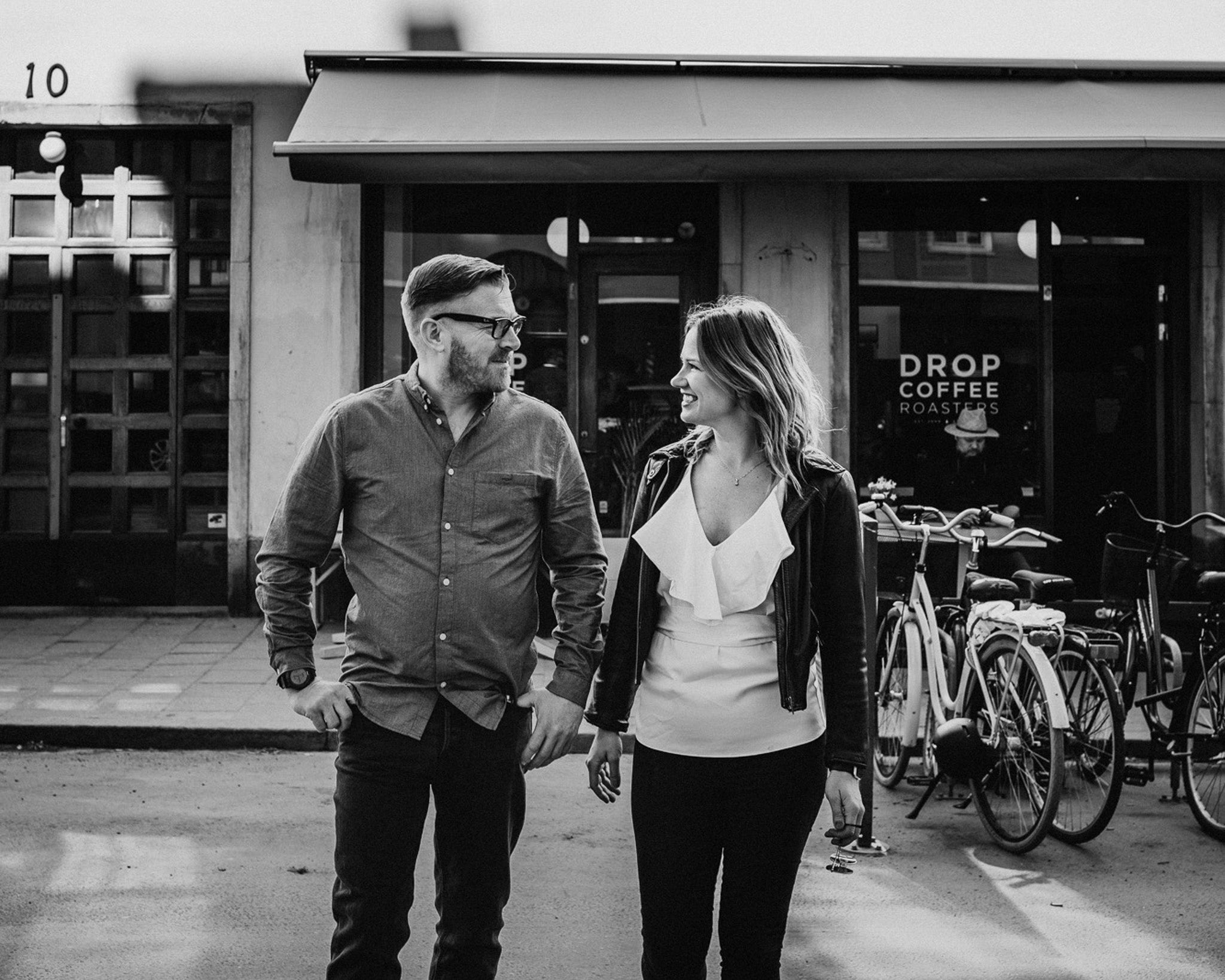Finca Nejapa Pacamara 2019
Flavour description: This is a complex coffee with a medium body. Flavours of melted chocolate, sweet Maraschino cherries with a mandarin acidity and sweetness of papaya and some hints of florals.
Category: Curious
Colour: Maraschino Red
Producer: Gloria Rodrigues with family
Farm: Finca Nejapa
Lot: Roma
Varietal: Pacamara
Process: Washed
Region: Ahuachapán, Santa Ana
Harvested: March to April 2019
Altitude: 1550 masl
Sustainability project: Installed new solar panels and filter for clean water at the farm.
Roast style: Light to medium to enhance the natural flavours of the coffee.
Cupping this Pacamara at Gloria's coffee lab in Ahuachapán during the ongoing harvest last year, I was speechless. Me (Joanna), Stephen, as Gloria and her son in law, Luis, all cupped it between 90-91,5. And as familiar, I am not throwing out 90's often. This is a top-end, complex and clear coffee!
If you have had other coffees from us from Finca Nejapa before, you have had the tastiest milk chocolate bar. The Pacamara from here is more intense. Instead of the normal red apple notes we have in the coffee from Nejapa, we get Maraschino cherries and hints of papaya and hints of florals. The Pacamara from Finca Nejapa is a very small lot, so get your hands on it while you can!
The story of Finca Nejapa
The success of Finca Nejapa, owned by Gloria Rodrigues, is the result of a strong family unit. Their hard work and skills have really paid off in the quality of their product. By working together, they can maintain and potentially improve the working conditions as well as the cup profile. We will have three different varieties from the Roma lot this year, this is our second release, the washed Pacamara. We are proud of another year with coffee from a stunning producer and dear friends.
The farm was inherited by Gloria’s father, José María Rodríguez Herrera in the ’50s, at that time the property was devoted to dairy cows, and it was José Maria who started growing coffee of the Bourbon variety. Little by little, he noticed coffee was extremely productive in that area, and that is where the story begins.
Nejapa still farms 7 hectares reforested with cedar trees, approximately 10 years old. The farm also has a diversity of shade trees, which helps maintain and preserve both the soil conditions and a wide variety of birds and small mammals that can be seen in that region. The Finca Nejapa farm is on the slopes of the Laguna de Las Ninfas (Waterlilies lagoon) with a spectacular sight over the Apaneca-Ilamatepec mountain range. Every year, Gloria establishes nurseries with selected seeds to keep her farm in good shape, balance production and secure future crops.
Tablón Roma, that Drop Coffee is buying everything of, is located in the western side of Finca Nejapa but was left unplanted until 10 years ago when Gloria obtained a loan through a local investment bank to redevelop and replant this area.
Mainly on the land, Gloria has planted Red Caturra and Yellow Caturra planted. The Pacamara is a small area of the lot that has been kept separated for us. The Pacamara is a very big sized bean, as the coffee cherries are bigger. Pacamara is a hybrid of the Maragogype and Pacas varietals. It was developed in El Salvador in 1958 by the Salvadorian Institute for Coffee Research. It took about 30 years of scientific research to create and was not released to coffee producers until 1980. The Pacas is a natural mutation of the Bourbon varietal. It is shorter and has more compact foliage which means it can endure tougher climate conditions such as high winds, sunlight and drought. It is a tough plant which is resistant to diseases, adapts to many growing conditions, and has high production yields. The Maragogype is a mutation of the Typica varietal. The trees grow very tall, and produce some of the largest coffee beans, the cup quality is high, but the yields are not. As you have probably figured out, the idea behind the Pacamara hybrid was to get the best out of the two varietals; resistance to diseases, adaptable to different growing conditions, high yields, with a high cup quality. There is a small problem using Pacas and Maragogype in a hybrid because they both have dominant genes, so around 20% fail to become Pacamara and remain one or the other.
Sustainability
As a charity project, we did a dinner with WINETRADE and Mathias Dahlgren where all the money went straight to installing electricity and water filters at the Roma lot. Visiting years after this, it is great to see the families living by the plot of the farms improved living conditions. See more in my chat to Gloria and Luis Roudriguez about it here .
The FOB prices for this coffee was 4.5 USD per pound.
